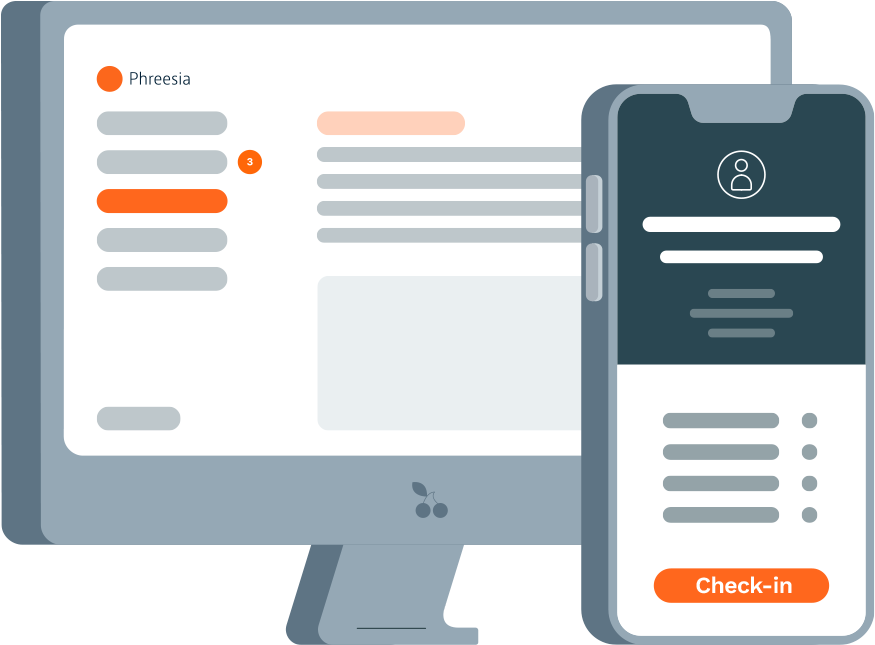Zeeshan Butt, Ph.D., Director of Clinical Content at Phreesia, was recently interviewed on Becker’s Healthcare Podcast about the value of patient-reported outcomes (PROs), including how technology can improve the patient experience and help providers deliver more comprehensive care. This is an edited transcript of Dr. Butt’s conversation with Becker’s Healthcare Publisher Scott Becker. Listen to the full podcast here.
Scott Becker: What are patient-reported outcomes, and why are they so important?
Zeeshan Butt: A patient-reported outcome is a standardized measure or questionnaire that directly asks patients about their symptoms, their functioning or their quality of life, including their emotional and physical well-being. Those PROs result in a score that can be interpreted, meaning it can be tested for its reliability and validity.
Patient-reported outcomes are the gold standard for many healthcare organizations, because they complement clinical outcomes. They’re often the best source of information about symptoms like pain, fatigue, and depression that may not show up on a lab screening or blood test. By directly asking patients about their experiences, we can empower them to share relevant, meaningful information that informs their long-term care.
Becker: How can healthcare organizations motivate patients to share patient-reported outcomes with their providers?
Butt: Patients absolutely want to communicate with their care providers, and asking them to complete relevant patient-reported outcomes is one of the best ways to engage [them] efficiently and consistently. When appropriate context is given, patients are willing to complete these questionnaires ahead of time—especially if their personal value is made clear on the front end.
Becker: What challenges do healthcare organizations face in collecting patient-reported outcomes?
Butt: In my mind, there are two classes of challenges:
- Clarity of purpose and vision. Healthcare organizations need to understand exactly what problem they’re trying to solve. Does the initiative serve a clinical or administrative need? Is it part of a value-based care initiative or a clinical research measure?
- Clarity of method and process. Healthcare organizations need to determine which measures to use for collecting PROs. From there, they need to establish a schedule for administering those PROs to patients, and then decide how best to integrate those assessments into their clinical workflows.
It’s important for organizations to think critically about their data-collection approach, because many methods fall short—even if they look great on the surface. For example, if an organization decides to screen patients for depression, it may be easiest to use pen and paper to record appropriate measures and then photocopy the results. But that strategy relies on labor-intensive hand scoring and manual data entry, which creates far more work for staff. Archaic data-collection methods like these also present negative consequences for patient care and healthcare quality measures.
Healthcare organizations should instead use technology to collect, score and save PROs. Digitized data collection allows for complex branching and automated PRO scoring—and if a PRO falls outside of an expected range, your staff will be alerted immediately.
Becker: Are there any best practices to help healthcare organizations address these challenges and collect more patient-reported outcomes?
Butt: I think there are two strategies that healthcare organizations should consider:
- Automate everything that can be automated—including the administration of PROs, the scoring process and the internal methods for reporting and saving patient-reported data.
- Communicate consistently and effectively. Providers need to talk openly with patients about why PROs matter to their care. One way to do this is through a shared decision-making conversation, which allows providers to use PRO data as a springboard to talk with patients about their symptoms and the treatment options that may help to address them.
Becker: What advice do you give healthcare organizations for improving their PRO collection strategies?
Butt: Patients absolutely want to tell their stories. If patients feel heard, not only will their perceptions of their provider improve, but they’ll also be able to convey important information about their well-being. Patients know their symptoms better than anyone else. What better way to get that information than by asking them directly?
My other piece of advice relates to the workflow. It’s important to automate everything you can—not only to collect patient-reported data, but to use it in a meaningful way.
Learn how Phreesia can help you collect patient-reported outcomes data more accurately and consistently without adding more staff.





